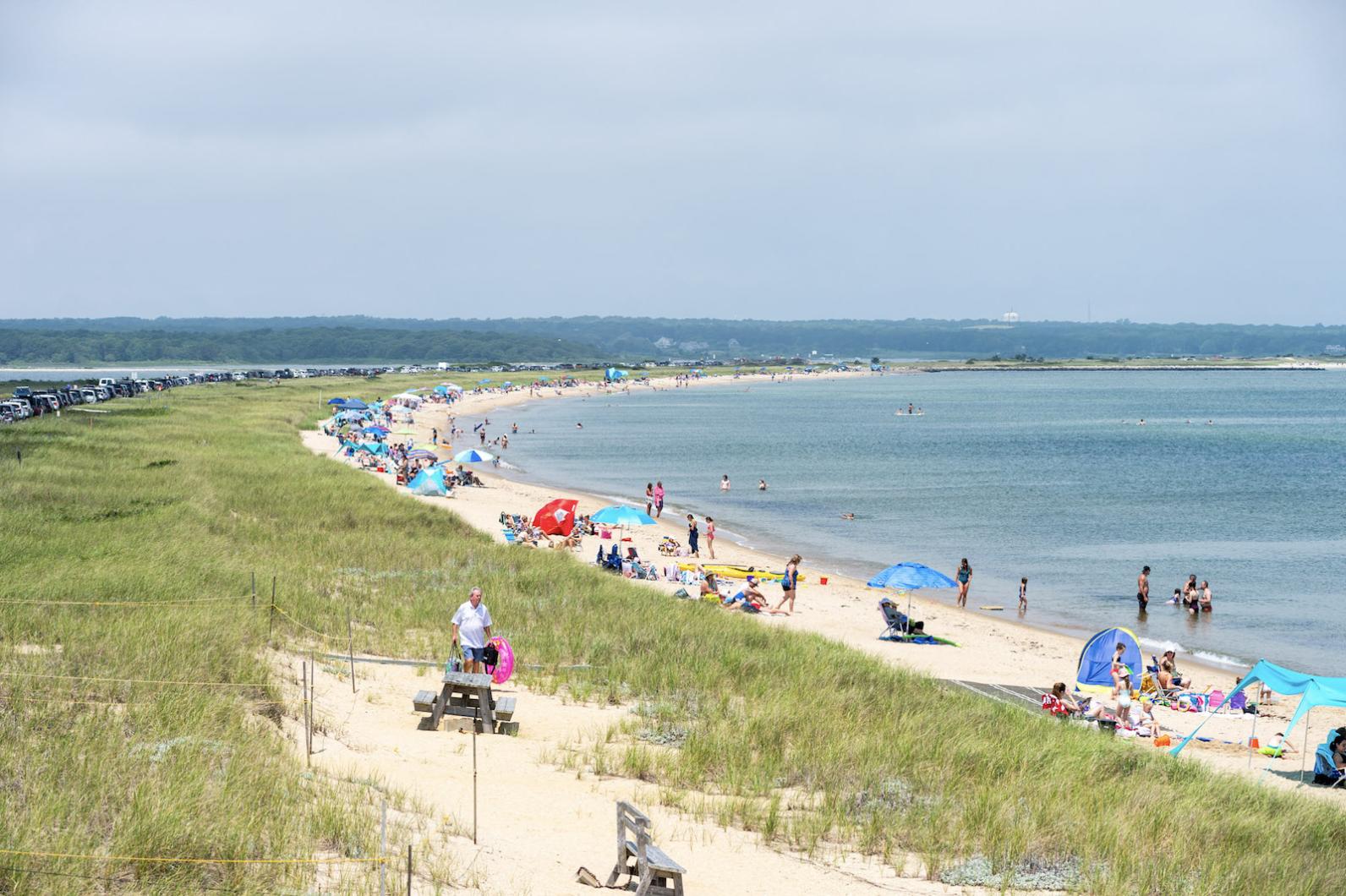Covid spoiled the party for a while, but Martha’s Vineyard returns to its time-honored traditions this July Fourth weekend with parades, band concerts, cookouts and fireworks.
From Aquinnah to Chappaquiddick, friends and families will gather to walk the beaches, swim in the still-cold ocean waters, sail in wind-ruffled harbors and rake clams in saltwater ponds. Hard-working Islanders will help keep everything running by manning shops and restaurants, directing traffic and responding to emergencies.
On the national holiday Tuesday, all will pause to remember our nation’s history — and perhaps to remind ourselves how lucky we are to live in a place like this — and in a free society.
These enduring events, survivors of wars and pandemics, were born from a sense of common investment, a celebratory opening to summer shared by year-round residents and families that returned year after year to the Island they loved.
And while there is plenty of community left on the Vineyard, there is a newer dynamic too, of people and corporate entities who are invested in the Island, but only in a financial sense.
This is not just nostalgia for yesteryear. Homeowners, both year-round and seasonal, have long rented their houses for part of the summer to underwrite their own vacations. And it’s been true for some time that as a summer resort, the Vineyard economy is not driven by tourism but by the real estate and construction industries.
But the latest trend of off-Island management companies buying up real estate on the Vineyard with the sole purpose of generating cash from short-term rentals is putting added stress on the already-complicated housing crisis here. Amenities such as pools are in high demand. These companies, which operate like hotels but without the regulations that usually apply to hotels, contribute little or nothing to the Vineyard and should somehow be curbed or prohibited.
The housing crisis now cuts across every sector on the Island. Town leaders have made it a top priority to find solutions, including by developing more affordable housing for municipal employees and others in the workforce, backing the concept of a housing bank and other measures.
Every Island town is already taking advantage of the state law that allows them to opt into a local tax on short-term rentals. For the most part, money from the tax is being put toward affordable housing.
More is needed. But it begs the question: when is a house not a home?
Much like America, Martha’s Vineyard is poised at a crossroad of generational change. This year as we celebrate, let’s open a new conversation about taking aim at the companies that would make the Island nothing more than an ATM.




Comments
Comment policy »